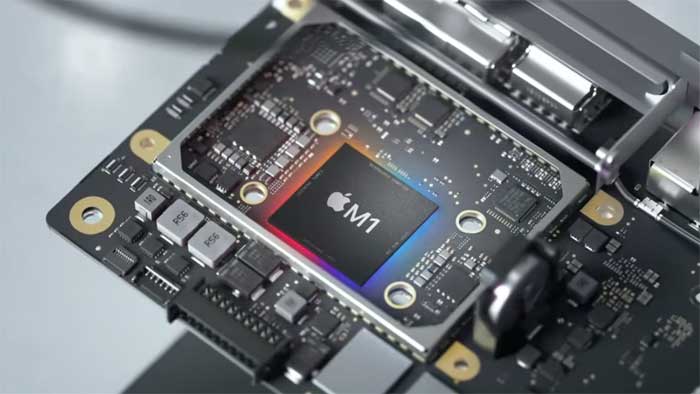 BIG DATA
BIG DATA
 BIG DATA
BIG DATA
 BIG DATA
BIG DATA
Apple Inc. is experiencing delays in the production of some MacBook and iPad models because of the global chip shortage, Nikkei Asia reported today, citing multiple sources.
Recent reports suggest that Apple is preparing to introduce new additions to both its MacBook Pro and MacBook Air laptop lines. According to today’s report, difficulties sourcing enough chips have caused delays in a stage of the manufacturing process where Apple suppliers place components on the laptops’ circuit boards.
The semiconductor crunch is taking place in a year where the iPhone maker is making major changes to its laptop supply chain. For more than a decade, Apple used central processing units from Intel Corp. to power MacBooks, but last year it began switching the product line to its own internally designed M1 chip.
Recent reports suggest that the upcoming MacBook Pro and MacBook Air models will both feature Apple-designed chips. According to Apple, the M1 can run some applications up to twice as fast as comparable Intel Corp. silicon.
As for the reported iPad production hiccups reported today, Nikkei Asia’s sources attributed them to a shortage of displays and display parts. Modern displays require integrated circuits to build and, as a result, this part of the consumer tech industry’s supply chain has been affected by the semiconductor crunch as well. Compounding the issue is that there’s reportedly a shortage in the glass used to make certain common types of screens.
Apple is believed to be readying a refreshed iPad Pro with enhancements that include a sharper display and a processor on par with the M1 chip powering some MacBooks.
The component shortages have reportedly led Apple to push back some orders for iPad and MacBook parts from the first half of 2021 to the second. However, it’s believed that there’s not yet an impact on product availability. Production plans for the company’s flagship iPhones are said to be on track for the time being as well.
It’s possible that the global chip shortage will have a bigger impact on the new product lines that Apple is reportedly developing, for which it doesn’t have the same well-established supply chain processes as for existing devices such as the iPhone. Among those new product lines is a rumored series of augmented reality headsets. Apple has been working on the technology for years, even making a few acquisitions along the way to advance the engineering effort, and it’s believed that the company plans to launch its first augmented reality device in 2022.
Apple’s top competitors, meanwhile, are also experiencing challenges sourcing enough chips to meet manufacturing targets. Last month, Samsung Electronics Co. Ltd. cautioned that it may skip launching a new Galaxy Note smartphone it had planned to introduce in the second half of 2021. The company told investors at the time that there’s a “serious imbalance in supply and demand of chips,” which it estimates could extend the production delays the industry is currently seeing for months, potentially even into 2022.
Support our mission to keep content open and free by engaging with theCUBE community. Join theCUBE’s Alumni Trust Network, where technology leaders connect, share intelligence and create opportunities.
Founded by tech visionaries John Furrier and Dave Vellante, SiliconANGLE Media has built a dynamic ecosystem of industry-leading digital media brands that reach 15+ million elite tech professionals. Our new proprietary theCUBE AI Video Cloud is breaking ground in audience interaction, leveraging theCUBEai.com neural network to help technology companies make data-driven decisions and stay at the forefront of industry conversations.